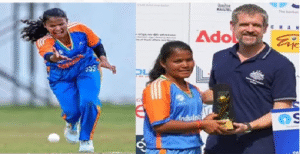In a world-first move aimed at protecting personal identity in the age of artificial intelligence, Denmark has announced groundbreaking legislation that allows individuals to copyright their own face, voice, and body. The bold initiative is designed to combat the growing threat of AI-generated deepfakes, which have raised global concerns around misinformation, privacy violations, and digital impersonation.
Under the proposed law, Danish citizens will have full legal ownership of their biometric likeness, enabling them to take action against unauthorized use of their appearance or voice in AI-generated content. This includes the right to demand removal of such content and to pursue civil damages.
“This law is about giving people back control over their identity in the digital era,” said Jakob Engel-Schmidt, Denmark’s Minister of Culture. “Your face is your property. Your body, your voice — these are not public domain.”
The legislation comes at a time when deepfake technology is becoming increasingly sophisticated and accessible. Fake videos of public figures, AI-generated influencers, and voice clones are proliferating across the internet — blurring the line between real and synthetic.
The law will also hold tech platforms accountable, requiring swift removal of flagged deepfake content or face stiff penalties under the EU Digital Services Act. However, exceptions will be made for satire and parody to protect freedom of expression.
Legal experts believe Denmark’s law could set a global precedent, especially as it prepares to take on a leadership role within the European Union. Countries around the world are watching closely, with many expected to follow suit in drafting similar protections.
As the digital world races ahead, Denmark is taking a decisive stand to ensure that identity — in both physical and digital form — remains a personal right, not a programmable asset.







